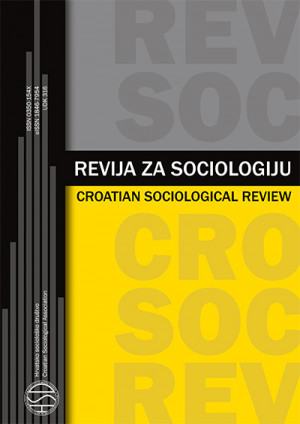Croatian Youth and Populism: A Mixed Methods Analysis of the Populism “Breeding Ground” among the Youth in the City of Zagreb
Croatian Youth and Populism: A Mixed Methods Analysis of the Populism “Breeding Ground” among the Youth in the City of Zagreb
Author(s): Augustin Derado, Vanja Međugorac, Vanja DergićSubject(s): Social Sciences, Psychology, Political behavior, Political psychology, Politics and society, Social differentiation, Crowd Psychology: Mass phenomena and political interactions, Nationalism Studies, Sociology of Culture, Sociology of Politics
Published by: Hrvatsko sociološko društvo
Keywords: youth; populism; democracy; authoritarianism; radical right populism;
Summary/Abstract: A number of recent international studies have reported the growing electoral success of populist parties among younger age groups. In this study, authors analysed the “breeding ground” for populism among the youth in Zagreb using the results of the Memory, Youth, Political Legacy and Civic Engagement (MYPLACE) project in Croatia. A mixed methods approach was employed with thematic analysis of 61 semi-structured interviews and regression analysis on a survey sample data of 1,216 young people aged 16–25. Qualitative analysis indicated analogies to Cas Mudde’s three core concepts of populism (the “good people”, the “bad elite” and the “general will”) among interviewees’ opinions.In addition, common ideological features of populism (nationalism and radical egalitarianism) were to a degree present among the interviewees’ attitudes. In the quantitative part of this paper, the authors narrowed the analysis of populism to the radical right variant of populism, and – given the lack of prominent populist actors in Croatia – to support of ideas rather than political parties. The attitude towards a political system with a strong leader not constrained by parliament was chosen as the outcome since it holds significant populist potential in contemporary democracies. Analyses showed the connection of the anti-elite, anti-systemic attitudes – as well as authoritarianism and a few right-wing political attitudes –with the strong leader preference. Both qualitative and quantitative results of this study indicated that the “breeding ground” for populism exists among the youth in Zagreb. Additional research is required to further examine that complex and previously unexplored topic.
Journal: Revija za sociologiju
- Issue Year: 46/2016
- Issue No: 2
- Page Range: 141 - 173
- Page Count: 33
- Language: English

